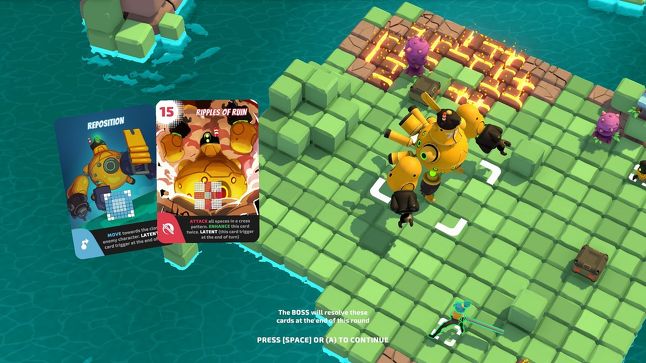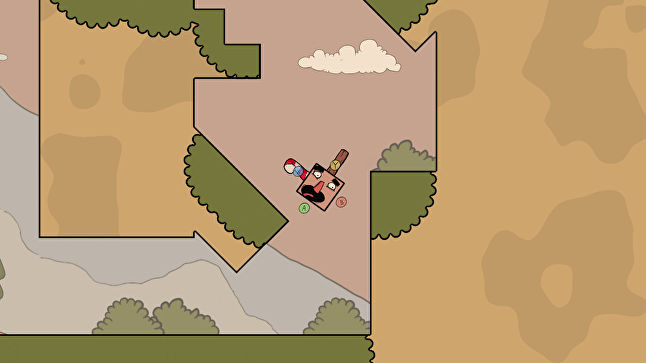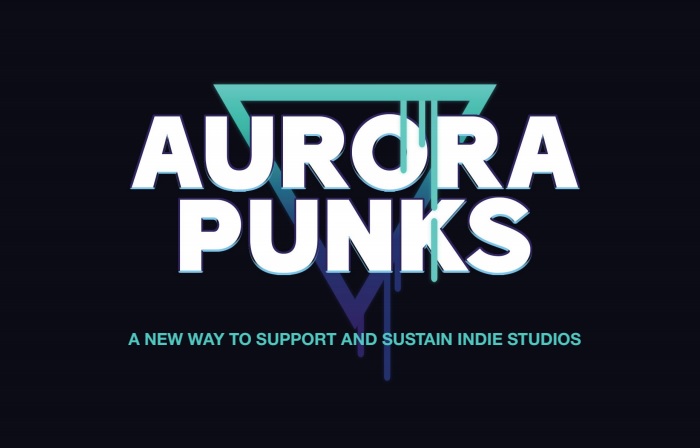As a founding member of Fatshark back in 2007, Aurora Punks founder Robert Bäckström knows a bit about what it’s like getting a new developer off the ground.
“At that time, I think it was even more difficult for small indie teams to set up new operations, especially in Sweden because there was no money or VC that wanted to invest in games at the time,” Bäckström tells GamesIndustry.biz in a recent conversation, adding, “There were a lot of lessons learned, and I would say, ‘If I were to do this another time, maybe I would do it like this or this.'”
Bäckström left Fatshark in late 2018 because he “felt an urge to go more into the biz side,” joining Raw Fury for an education on publishing games.
“I learned a lot from that, because I think Raw Fury had some excellent ways of approaching things, especially how they take a lot of small games and turn them into many small revenue streams, and by doing so manage to build some kind of sustainability,” Bäckström says.
“I still find the games industry is very much where you have to know the right people to get in there”
He spent nearly two years with Raw Fury, but his path through the industry was diverted by a rare opportunity.
“There came a point where Tencent made a major investment into Fatshark,” Bäckström says, “so I got some money at hand and thought, ‘This is the time to start that studio I’ve always dreamt of’.”

Robot Lord Rising is one of the upcoming games from Aurora Punks developer Limit Break
Bäckström says he met a pair of student developers in Northern Sweden who wanted to work together in the long-term as a team, but had some of the usual challenges facing ambitious young developers. One of the obvious challenges was funding, which Bäckström was now in a position to assist with. Another was networking.
“I still find the games industry is very much where you have to know the right people to get in there,” Bäckström says.
There were ways that too could be addressed, especially with Bäckström’s help, but the third big problem required a new approach in their eyes.
“What we also realized was a big challenge was the sustainability for a studio,” Bäckström says. “Even if you get the funding for a prototype, what happens once the prototype is done? And if you get funding for a full game from a publisher, what happens after that game is released? How do you make sure that team is not stranded?”
The answer for Bäckström was to take inspiration from his time playing in punk bands.
“There was this DIY mentality that I really liked. Make things happen with what things you have at hand”
“There was this DIY mentality that I really liked,” Bäckström recalls. “Make things happen with what things you have at hand… That’s how the notion of Aurora Punks being a collective was born, and it was formalized a year ago. We set it up as a proper business and got some angel investors to put some money into it because they believed in the idea.”
The goal at the heart of the collective was one common to a number of companies, but often approached from different angles: to partner with developers and give them creative freedom while taking some of the business concerns off their plate.
“What if you as a developer can have that same security that other professions give you,” Bäckström asks. “Salary, decent work hours, maybe even a pension scheme or things like that?”
He adds, “Within Aurora Punks, there’s a lot of freedom in terms of the creative vision and what they want to work on. But there’s also a lot of responsibility, like accepting the fact that we are in this together, and we need to be able to help and communicate and trust each other. So there’s a give and take.”

Hoplegs developer Why Kev is the latest addition to Aurora Punks
Aurora Punks either owns its members outright (as with first two members Limit Break and Pixadome) or invests in them (Upstream Arcade, Loot Locker). With the recent additions of WimaSima and Why Kev, Aurora Punks is now up to six members, and Bäckström would like to grow further still.
“The setup we have is quite scalable,” he says. “Every time we have a new member team joining in, it gives us a little bit more overhead, lowers the risks, and brings more revenue into the collective and allows us to take more new risks for new projects. Adding more studios or having new members joining is something we welcome.”
“It’s not just growth because of growth. It’s because there’s real synergy happening”
Having said that, he admits there needs to be a philosophical match for a new member in addition to the union making business sense. They have to fit with Aurora Punks’ cultural emphasis on sharing knowledge, collaboration, and “a very down-to-earth approach.”
“It’s not just growth because of growth. It’s because there’s real synergy happening,” Bäckström says.
A scrappy group of up-and-coming developers working together and pooling resources makes sense when everyone’s starting from essentially the same point. But what happens if one of the developers has a breakout hit that carries the load for everyone else? What happens if another has a string of setbacks, or focuses on projects with dim commercial prospects? How does the happy collective ensure there won’t be resentment, in-fighting, or other such tensions?
“I know that’s going to be a situation coming, but I think it’s important for us to discuss the values,” Bäckström says. “When we setup the collective and when the studios are joining us, it’s important for us that they buy into the notion of, ‘We’re doing this together.'”
The idea is that being part of the collective is supposed to increase these developers’ chances of sticking around until they can make that breakout hit.
“As long as people are aware of that and we constantly talk about that, that should be hopefully enough,” Bäckström says. “But we need to have ways to incentivize, and we are discussing ways to incentivize innovation. I think it’s important to always feel an urge to create more. I guess that’s with every workplace: how do you make sure people stay motivated, want to do new stuff, cool stuff, try out stuff, and not be afraid of trying new stuff?”
There’s a balance to be struck between democracy and self-governance on one side, and making sure Aurora Punks is a sustainable business on the other.
“There needs to be a discussion around that, but in the end, it would be the same discussions we would have as a stand-alone indie,” Bäckström says. “If you decide to do a game that’s commercially not viable, there are challenges you have to face.”
GamesIndustry.biz
Source link
Related Post:
- How Australia is creating a sustainable video game development ecosystem
- Post-Apocalyptic 4X Strategy Title Punk Wars Announced
- New Ace Combat Game in Development as AC7 Has Shipped Over 3 Million Copies; New Content Announced
- Xbox Game Pass Doesn’t Negatively Impact A Game’s Development, We Happy Few Developer Says
- New Mana Game in Development for Consoles
- New TimeSplitters Game Officially In Development As Free Radical Design Reforms
- New Mana Game for Consoles in Development; Echoes of Mana & Legend of Mana Anime Announced
- New Mana game in development for console • Eurogamer.net
- Cave Announces Development of New Touhou Project Game
- Netflix hires new VP of game development
